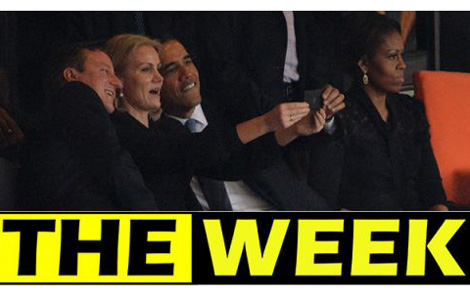Beijing to reform pricing system for subway tickets
Updated: 2013-12-16 03:35
By Jin Haixing (China Daily)
|
|||||||||||
The Beijing municipal government has announced that it plans to reform the current low-cost subway ticket system in an apparent bid to cut the overall cost of transport subsidies in the city.
Plans will involve a differential pricing system during peak hours to ease the pressure of passenger volume, the government said in a statement on Friday.
Last week, Beijing's Municipal People's Congress conducted a three-day review of the city government's 2014 budget. Members of the congress's urban construction and environmental protection commission said the government's financial burden is increasing because of mounting subsidies for low-cost public transport.
They called on the government to make cuts in the subsidies, with some suggesting variable ticket pricing as a solution.
Beijing has had a low-price strategy for its public transport system since 2007 to encourage public use.
Any subway trip, regardless of how long it is, costs only 2 yuan (33 US cents), while a bus trip costs only 0.4 yuan if the passenger has a Yikatong, or public transportation reloadable smart card.
A statement from the environmental commission said earlier this month said that the government's public transportation subsidy is growing every year. In 2010, the total subsidy was 12.8 billion yuan, while in 2013 the figure could be more than 18 billion yuan.
The government said expenditure increased more than revenue in 2012.
Some lawmakers are now suggesting that the rising costs should be reflected in ticket prices and the city government should reconsider the size of the subsidy.
City legislator Ning Bin has proposed that the subway charge riders according to the length of the trip. He said people who travel more than six stations should pay more than 2 yuan, with a price cap of around 8 or 10 yuan.
Such suggestions have led to heated debate, with some cheering the proposal, while others say it would be counterproductive.
Xu Kangming, who has done research on Beijing's public transport, said that the reform should be carried out as soon as possible.
Xu said that the gap is growing between the low price and the actual cost of operation, especially in rush hour.
But not all experts agree that hiking fares is a good idea.
Dong Yan, a researcher at the Institute of Comprehensive Transportation, said that the public transportation sector should provide social welfare services to the public, and therefore the government should maintain the current subsidy policy.
Despite the rising subsidy, Beijing's public transport system has seen more passengers and covered more parts of the city in the last several years, he said.
In 2012, 44 percent of Beijing commuters used the city's public transport, the highest rate in the country. However, it still did not meet the target of 60 percent set by the State Council early this year.
A 29-year-old commuter who gave only her surname, Liu, pointed out that beginning next year, the city government will strictly limit the purchase of cars to encourage green transportation. That lawmakers are now considering changing the low-cost public transportation strategy contradicts its green-transportation strategy, she said.
"How can you encourage green transportation if you change the low price?" she said.
Related Stories
Beijing subway ticket to remain at low price 2010-06-11 13:38
Mexicans protest against subway fare hike 2013-12-13 15:30
Passengers' leap delays subway 2013-12-12 09:51
Man detained for riding on roof of subway car 2013-12-05 07:10
Man confesses to subway offenses 2013-12-11 09:34
Today's Top News
Complacency hinders US energy-saving strategies
Beijing to reform pricing system for subway tickets
Vaccines suspended after deaths
China reports new H7N9 case
Chang'e-3 mission 'complete success'
Mandela laid to rest
Abe's checkbook diplomacy may fail
Finding people with right talent
Hot Topics
Lunar probe , China growth forecasts, Emission rules get tougher, China seen through 'colored lens', International board,
Editor's Picks

|

|

|

|

|

|




